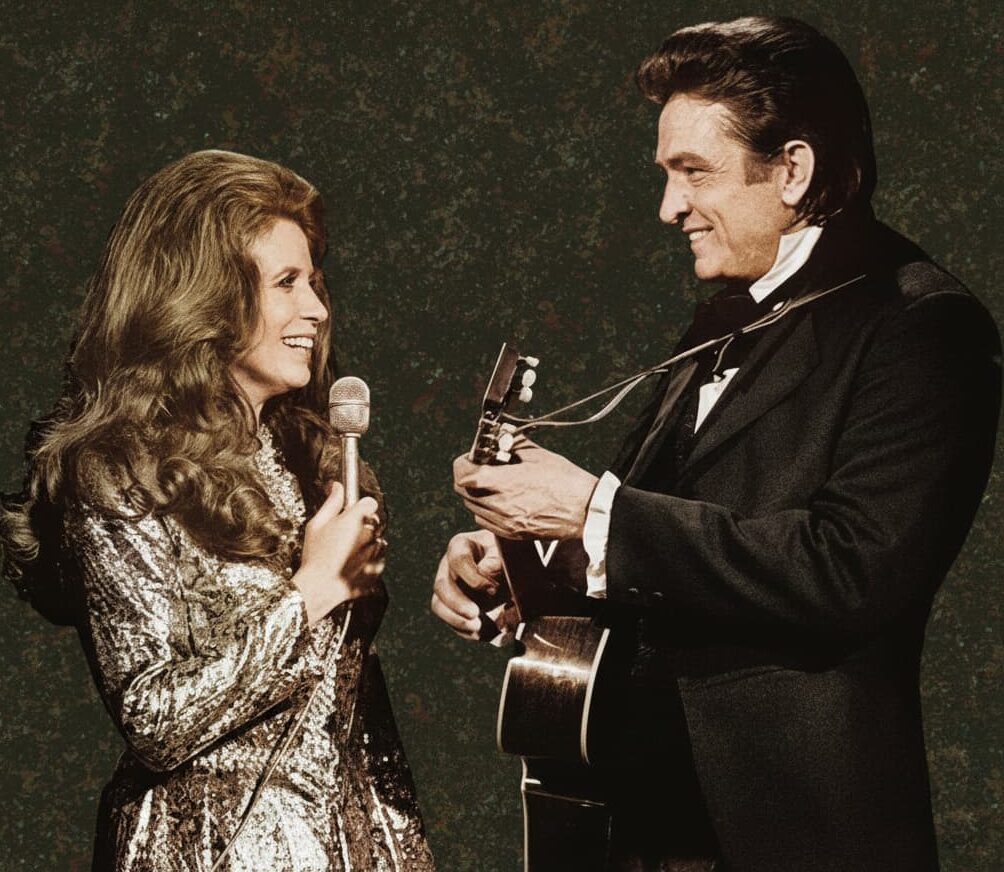
💔 The Fiery, Fictional Squabble That Defined a Real-Life Country Romance
There are songs that simply entertain, and then there are those that capture a moment, a mood, or a relationship with such raw, undeniable electricity that they become cultural touchstones. “Jackson,” the sizzling 1967 duet by Johnny Cash and June Carter, belongs unequivocally to the latter. For many of us who remember when this record first spun on the turntable, it was more than just a catchy tune; it was a front-row seat to the passionate, often volatile, courtship of two country music legends.
Released in February 1967 on Columbia Records as a single from their album, Carryin’ On with Johnny Cash and June Carter, this song’s success was immediate and significant. It soared to No. 2 on the Billboard Country Singles chart, a towering testament to its resonance with the audience. More importantly, it sealed their musical partnership with critical acclaim, winning the pair a Grammy Award in 1968 for Best Country & Western Performance Duet, Trio or Group. While its pop-chart success was somewhat overshadowed by the contemporaneous, sultrier version by Nancy Sinatra and Lee Hazlewood, it is the Cash and Carter rendition—a marriage of grit and glee—that remains etched in the collective memory of country music fans.
The story behind “Jackson” is a fascinating twist of artistic inspiration. The song was written a few years prior, in 1963, by Billy Edd Wheeler and Jerry Leiber (under the pseudonym Gaby Rodgers). Wheeler, a thoughtful songwriter, was famously inspired by the ferocious, sparring dialogue in the play Who’s Afraid of Virginia Woolf? The central meaning of “Jackson” revolves around a married couple at a breaking point, engaging in a theatrical, high-stakes verbal duel. The husband, seeking freedom and excitement, announces he is running off to Jackson—a place he imagines as a wild paradise where he’ll be adored and live a life of sin and consequence-free revelry. But the wife, cutting him down to size with every verse, mocks his grand illusions, predicting his swift downfall into foolishness, old age, and ill health, while coolly assuring him she’ll be right there, in Jackson, having the last laugh, perhaps with a suitor of her own.
For Johnny and June, who were not yet married when they recorded it—their deeply complex and tempestuous real-life romance was a matter of public fascination—this song was a pitch-perfect vehicle for their undeniable chemistry. Cash was still struggling with addiction and finalizing his divorce from his first wife, Vivian Liberto. June Carter was the steady, grounding, yet equally spirited force who helped save him. Their banter in the song, the way they trade lines—Cash’s boastful pronouncements met with Carter’s sharp, playful, and ultimately protective sass—was a mirror, albeit a funhouse one, to the genuine tension and affection that crackled between them. It’s the sound of unconditional love battling a rebellious spirit, a dynamic many older readers will recognize from their own long and winding relationships. Every note is steeped in the history that was unfolding between them, transforming a clever composition into an intimate, high-wire act of a duet. It is a glorious portrait of two souls irrevocably tied together, using cutting words as a strange kind of affectionate foreplay.